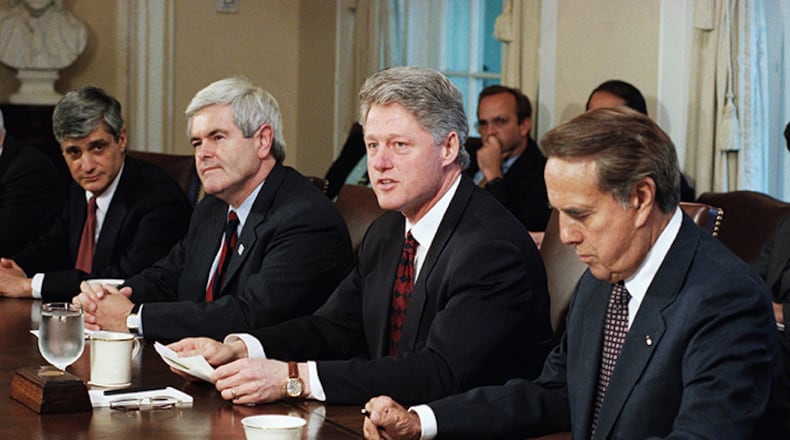The clock is ticking on Capitol Hill towards what may be a very messy spending showdown this fall, with little obvious political middle ground, and the distinct threat of another government shutdown.
Lawmakers in Congress are supposed to get their budget work done each year by Sept. 30 - but that hasn’t happened on time since 1996 — and this year seems no different.
GOP leaders have talked for months about spending cuts, but House Republicans left town in July for an extended summer break unable to agree among themselves on how much to spend in 2024.
So far in August, most of the GOP talk has been about impeaching President Biden or the investigation of his son Hunter, not how to pass 12 government funding bills in the 12 days of work scheduled for the House in September.
“Do you all care if the government shuts down?” U.S. Rep. Marjorie Taylor Greene, R-Rome, asked a town hall gathering in Gordon County this week.
“No!” was the loud response from the audience — an answer which likely could be repeated in all sorts of GOP districts.
“House Republicans promised the American people that we would cut woke, weaponized, and wasteful spending,” said U.S. Rep. Andrew Clyde, R-Athens.
But the House had to leave Capitol Hill early last month, amid a rebellion by conservatives, who wanted deeper cuts than what GOP leaders were offering.
This week, one prominent GOP voice called for Republicans to use the threat of a government shutdown in October to force action on legislation dealing with illegal immigration.
“No border security, no funding,” said U.S. Rep. Chip Roy, R-Tex.
We’ve been down this road before — where Republicans use a shutdown as political leverage.
U.S. House Speaker Newt Gingrich tried to use a partial government shutdown in late 1995 to extract cuts from President Clinton. It didn’t work.
In 2013, Republicans tried to use a government shutdown to get rid of the Obama health law. That failed.
In late 2018, much of the government went dark for 35 days, as President Trump demanded more money for his border wall. He didn’t get it.
A recent credit downgrade for the U.S. cited political dysfunction on spending as one reason for the decision.
Maybe the best way to get things done would be to actually debate and vote on the yearly government funding bills — especially with a national debt now over $32 trillion.
But Congress is home until September.
The clock is ticking. The next session of Legislative Chicken on spending and a government shutdown will resume after Labor Day.
Jamie Dupree has covered national politics and Congress from Washington, D.C. since the Reagan administration. His column appears weekly in The Atlanta Journal-Constitution. For more, check out his Capitol Hill newsletter at http://jamiedupree.substack.com
About the Author





